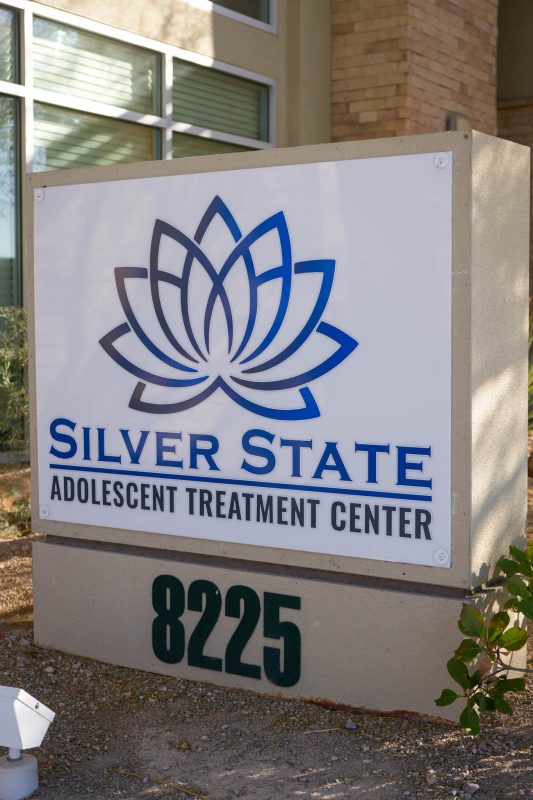Teen Other Specified Feeding / Eating Disorder (OSFED) Residential Treatment Program
What We Do

Behavioral Therapy

Trauma-Informed Care

Holistic Treatment Therapy
OSFED Treatment Program for Teens
Other Specified Feeding or Eating Disorder (OSFED) describes disordered eating that doesn’t meet full criteria for anorexia, bulimia, or binge eating disorder—but still causes significant physical and emotional distress. It’s just as serious as other eating disorders and often just as dangerous.
Teens with OSFED may restrict food, purge occasionally, binge at irregular intervals, or obsess over body image—all while hiding their pain from others. Because their behaviors don’t always match a specific diagnosis, OSFED can be overlooked or minimized.
At Silver State Adolescent Treatment, we recognize the seriousness of OSFED and treat it with the same level of clinical care and empathy as any other eating disorder. Our residential program offers teens the support, structure, and therapeutic tools they need to move forward in recovery.


What is OSFED?
OSFED (formerly known as EDNOS) is one of the most common eating disorder diagnoses among teens. It includes a wide range of disordered eating behaviors that may not fully meet criteria for anorexia, bulimia, or binge eating—but are still harmful, distressing, and in need of treatment.
Examples of OSFED include:
All signs of anorexia, but weight is within a “normal” range
Purging after small amounts of food (not considered bingeing)
Restrictive eating combined with obsessive dieting
Night eating syndrome or atypical bingeing
Irregular food rituals tied to anxiety or body image
These behaviors can have a lasting impact on a teen’s mental, emotional, and physical health. At Silver State, we work to treat both the behavior and the emotional struggles beneath it.
Signs and Symptoms of OSFED in Teens
Since OSFED is broad, symptoms can vary. But there are common red flags that may suggest your teen is struggling:
Skipping meals or eating very little
Episodes of bingeing or purging (even if infrequent)
Anxiety around food or weight
Compulsive exercise
Strict food rituals or rules
Distorted body image
Weight fluctuations
Isolation or mood swings
Excessive focus on “healthy” eating or dieting
Even if a teen doesn’t match a specific diagnosis, that doesn’t mean their struggle is any less real. Our program helps teens feel validated, seen, and ready to heal.


Why Individualized Plans Matter for Teens with OSFED
No two teens with OSFED look exactly the same. That’s why our treatment model is rooted in personalization. After a thorough clinical, nutritional, and emotional assessment, we create an individualized treatment plan that meets the teen exactly where they are.
This plan may include:
Individual therapy with a licensed clinician
Group sessions focused on emotional regulation, identity, and peer support
Nutrition education and therapeutic meals
Body image work and exposure therapy
Family therapy to support the home environment
Trauma-informed and mindfulness-based techniques
Holistic healing experiences such as movement, art, or equine therapy
Our goal is to help teens find freedom from shame, rebuild trust in their bodies, and create long-term habits for physical and emotional wellness.
The Silver State Adolescent Approach
At Silver State, we believe OSFED deserves the same attention, empathy, and clinical care as any other eating disorder. We don’t minimize the pain of “not fitting a label.” We meet teens with OSFED where they are—with structure, compassion, and a plan designed to help them recover.
Our residential setting offers a healing space where teens can step away from triggers, explore their emotions safely, and relearn how to nourish both their bodies and their minds.
We help teens reclaim their identities—not as someone “not sick enough,” but as someone deserving of healing and capable of lasting recovery.
Contact Silver State Adolescent Treatment
Please fill out the form to get started and someone from our admissions team will be reaching out to you shortly.

Teen Eating Disorders We Treat
FAQs About Teen OSFED Residential Treatment
Yes. It’s a clinically recognized condition that often causes just as much distress and risk as other eating disorders.
Atypical anorexia, purging disorder, night eating syndrome, and subclinical bulimia or binge eating behaviors.
Not at all. OSFED can be just as dangerous, especially because it’s often underrecognized.
Irregular eating habits, excessive food rules, body image struggles, purging, food restriction, or emotional distress around food.
We use CBT-E, DBT, trauma therapy, nutrition counseling, family therapy, and experiential approaches tailored to the teen’s symptoms.
Yes. We have licensed teachers and academic support tailored to the student’s pace.
Yes. Weekly family therapy and ongoing communication are key parts of the process.
No. OSFED can be dangerous and emotionally devastating—treatment is absolutely appropriate.
No. Eating disorders require clinical support, even if symptoms appear subtle.
Maybe not right away, but we’ll help you and your teen understand it deeply—and advocate with confidence.
Yes. With support, structure, and the right treatment, recovery is within reach.
Get Started
At Silver State Adolescent Treatment, we understand how important your questions and concerns are. For immediate assistance or detailed inquiries, please fill out our contact form so our team can respond quickly.
Our compassionate staff is here to provide personalized support tailored to your teen’s needs.
You can also reach us directly using the contact information below. Together, we’ll take the first steps toward your teen’s mental health and recovery.








